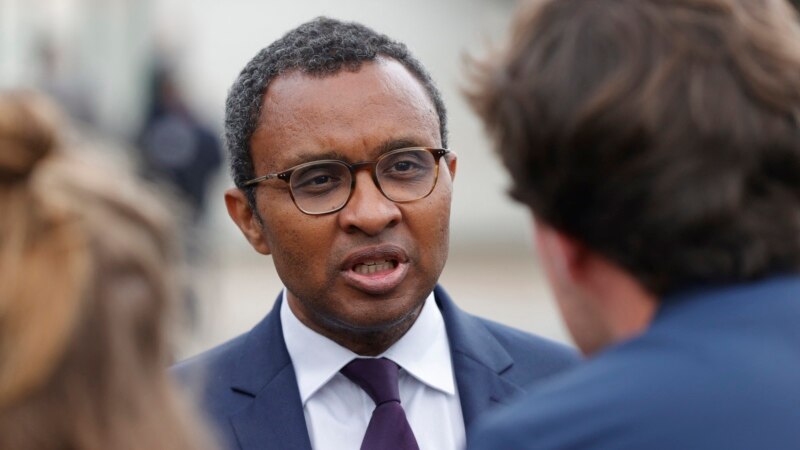At his swearing-in ceremony, new Education Minister Pap Ndiaye paid tribute to the nation’s teachers, singling out Samuel Paty, killed by an Islamist extremist in 2020.
Ndiaye described himself as a symbol of meritocracy and diversity. Rather than feeling proud, he said, he assumed his new job with a sense of duty and responsibility.
The 57-year-old Ndiaye is a longtime university professor and expert on the history of minorities and rights movements in both France and the United States. Last year, he was tapped to head France’s National Museum of the History of Immigration.
“It was unexpected, obviously, but it was very good news.”
Louis-Georges Tin is a Black rights activist and former head of the Representative Council of Black Associations, or CRAN. He salutes the new education minister.
“He’s a brilliant person,” Tin said. “He’s respected in the academy. He’s done quite a few actions in terms also of the fight against racism in the country.”
While Tin is not alone in praising Ndiaye’s appointment, some right-wing politicians are criticizing it.
Far-right leader Marine Le Pen, who came second in last month’s presidential vote, described Ndiaye’s designation as an alarming signal for the future. She called him a defender of so-called “racialism” and woke-ism, which critics deride as a leftist protest ideology. Other critics describe Ndiaye as anti-police.
Interviewed on French radio, Ndiaye’s sister, award-winning author Marie Ndiaye, said she wasn’t surprised at the criticism — but called it absurd and stupid.
Some observers say the controversy over Ndiaye’s appointment reflects simmering discrimination in France, as the 2020 death of African-American George Floyd in police custody in the United States ignited similar Black rights protests here.
In interviews over the years, Pap Ndiaye has said France is reluctant to fully examine its history of colonialism and slavery. He has praised French police but also said police violence should be discussed.
Activist Louis-Georges Tin said much more needs to be done in teaching French students about discrimination. Tin said he fears Ndiaye’s efforts to change things during his tenure will result in pushback.
“Having a Black minister in France is not new,” Tin said. “And having racist attacks is not new either. It’s always the same story … so that’s why we are in a situation of state racism, systemic racism. People don’t want Black ministers in this country.”
Ndiaye is certainly different from his predecessor, Jean-Michel Blanquer, who criticized both the “Black Lives Matter” movement and so-called woke culture. Education unions, which clashed with Blanquer, have reacted positively to the country’s new education chief.

